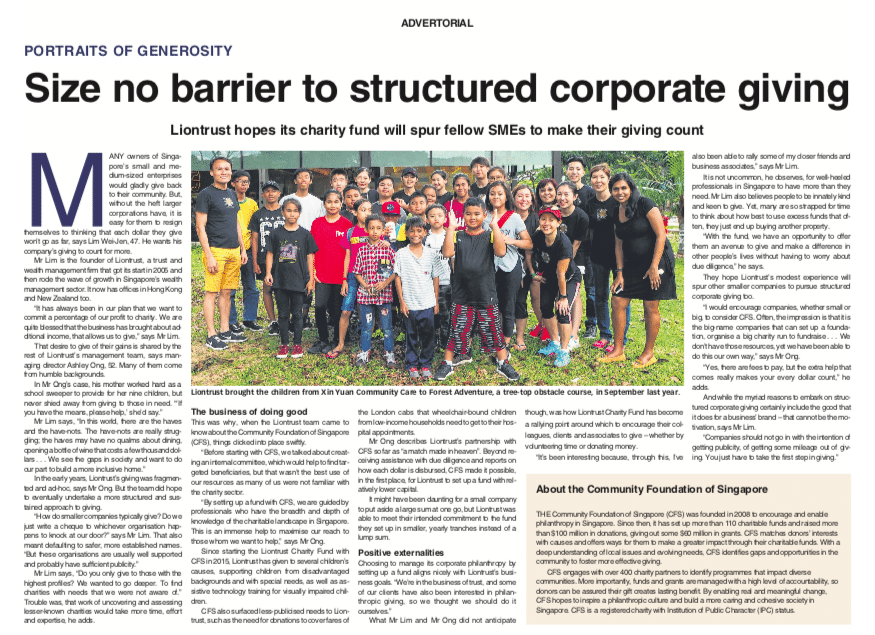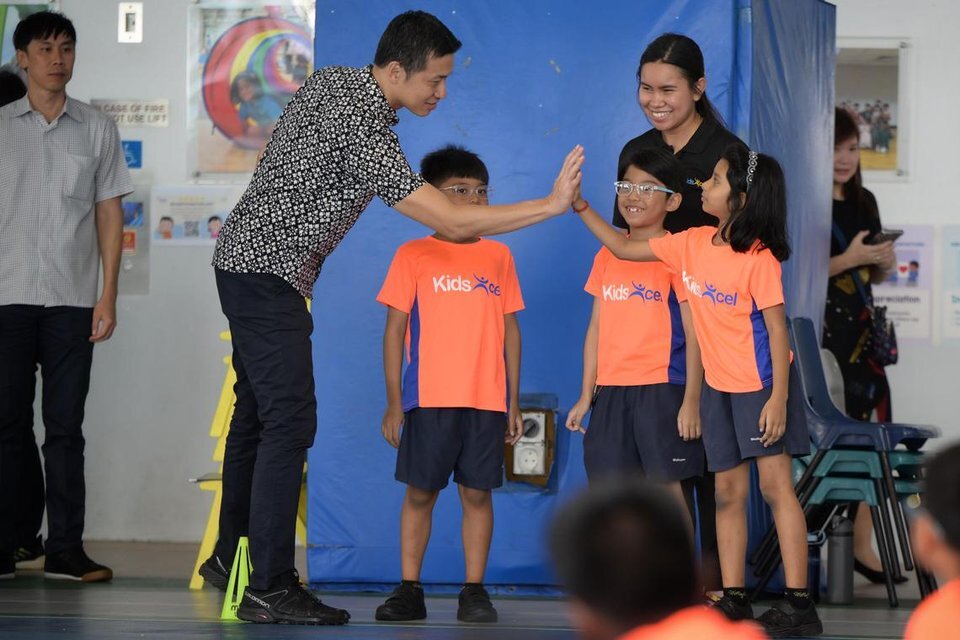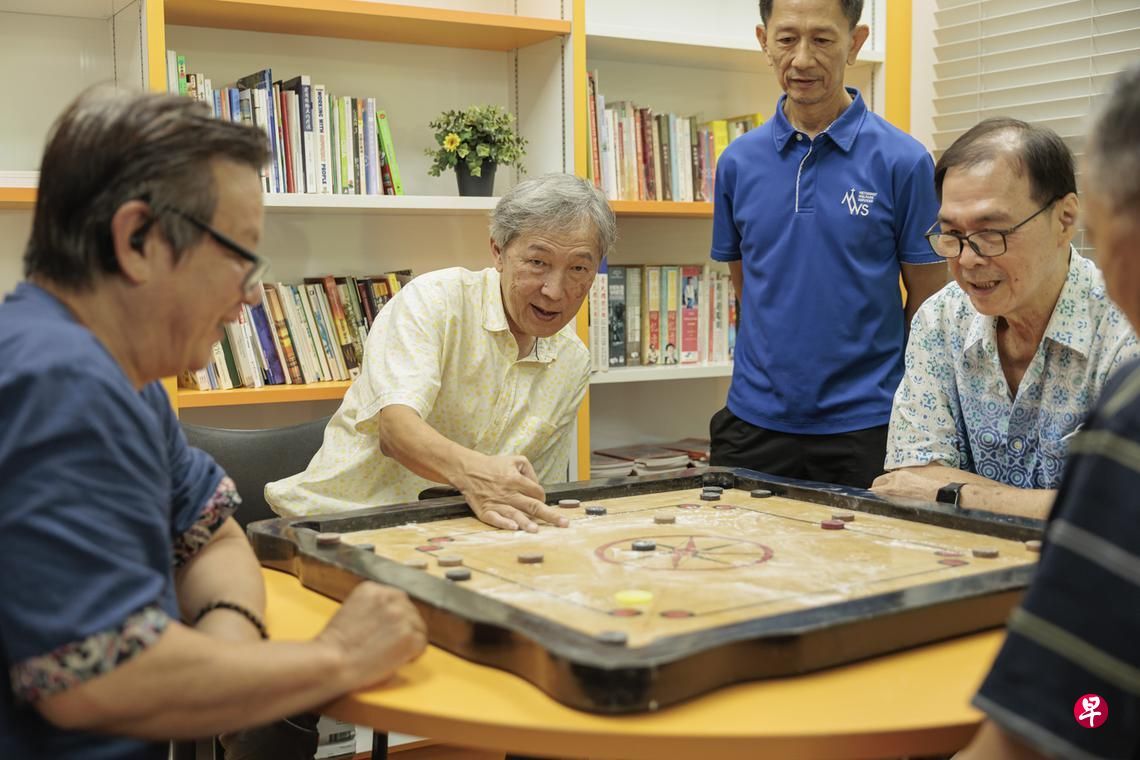Business Times: Size no barrier to structured corporate giving


Liontrust hopes its charity fund will spur fellow SMEs to make their giving count
Many owners of Singapore’s small and medium-sized enterprises would gladly give back to their community. But, without the heft larger corporations have, it is easy for them to resign themselves to thinking that each dollar they give won’t go as far, says Lim Wei-Jen, 47
He wants his company’s giving to count for more.
Mr Lim is the founder of Liontrust, a trust and wealth management firm that got its start in 2005 and then rode the wave of growth in Singapore’s wealth management sector. It now has offices in Hong Kong and New Zealand too.
“It has always been in our plan that we want to commit a percentage of our profit to charity. We are quite blessed that the business has brought about additional income, that allows us to give,” says Mr Lim.
That desire to give of their gains is shared by the rest of Liontrust’s management team, says managing director Ashley Ong, 52. Many of them come from humble backgrounds. In Mr Ong’s case, his mother worked hard as a school sweeper to provide for her nine children, but never shied away from giving to those in need. “‘If you have the means, please help,’ she’d say.”
Mr Lim says, “In this world, there are the haves and the have-nots. The have-nots are really struggling; the haves may have no qualms about dining, opening a bottle of wine that costs a few thousand dollars…. We see the gaps in society and want to do our part to build a more inclusive home.”
In the early years, Liontrust’s giving was fragmented and ad-hoc, says Mr Ong. But the team did hope to eventually undertake a more structured and sustained approach to giving.
“How do smaller companies typically give? Do we just write a cheque to whichever organisation happens to knock at our door?” says Mr Lim. That also meant defaulting to safer, more established names. “But these organisations are usually well supported and probably have sufficient publicity.”
Mr Lim says, “Do you only give to those with the highest profiles? We wanted to go deeper. To find charities with needs that we were not aware of.” Trouble was, that work of uncovering and assessing lesser-known charities would take more time, effort and expertise, he adds.
The business of doing good
This was why, when the Liontrust team came to know about the Community Foundation of Singapore (CFS), things clicked into place swiftly.
“Before starting with CFS, we talked about creating an internal committee, which would help to find targeted beneficiaries, but that wasn’t the best use of our resources as many of us were not familiar with the charity sector.
“By setting up a fund with CFS, we are guided by professionals who have the breadth and depth of knowledge of the charitable landscape in Singapore. This is an immense help to maximise our reach to those whom we want to help,” says Mr Ong.
Since starting the Liontrust Charity Fund with CFS in 2015, Liontrust has given to several children’s causes, supporting children from disadvantaged backgrounds and with special needs, as well as assistive technology training for visually impaired children. CFS also surfaced less-publicised needs to Liontrust, such as the need for donations to cover fares of the London cabs that wheelchair-bound children from low-income households need to get to their hospital appointments.
Mr Ong describes Liontrust’s partnership with CFS so far as “a match made in heaven”.
Beyond receiving assistance with due diligence and reports on how each dollar is disbursed, CFS made it possible, in the first place, for Liontrust to set up a fund with relatively lower capital.
It might have been daunting for a small company to put aside a large sum at one go, but Liontrust was able to meet their intended commitment to the fund they set up in smaller, yearly tranches instead of a lump-sum.
Positive externalities
Choosing to manage its corporate philanthropy by setting up a fund aligns nicely with Liontrust’s business goals. “We’re in the business of trust, and some of our clients have also been interested in philanthropic giving, so we thought we should do it ourselves.”
What Mr Lim and Mr Ong did not anticipate though, was how Liontrust Charity Fund has become a rallying point around which to encourage their colleagues, clients and associates to give – whether by volunteering time or donating money.
“It’s been interesting because, through this, I’ve also been able to rally some of my closer friends and business associates,” says Mr Lim.
It is not uncommon, he observes, for well-heeled professionals in Singapore to have more than they need. Mr Lim also believes people to be innately kind and keen to give. Yet, many are so strapped for time to think about how best to use excess funds that often, they just end up buying another property. “With the fund, we have an opportunity to offer them an avenue to give and make a difference in other people’s lives without having to worry about due diligence,” he says.
They hope Liontrust’s modest experience will spur other smaller companies to pursue structured corporate giving too.
“I would encourage companies, whether small or big, to consider CFS. Often, the impression is that it is the big-name companies that can set up a foundation, organise a big charity run to fundraise… We don’t have those resources, yet we have been able to do this our own way,” says Mr Ong.
“Yes, there are fees to pay, but the extra help that comes really makes your every dollar count,” he adds.
And while the myriad reasons to embark on structured corporate giving certainly include the good that it does for a business’ brand – that cannot be the motivation, says Mr Lim. “Companies should not go in with the intention of getting publicity, of getting some mileage out of giving. You just have to take the first step in giving.”
Source: Business Times © Singapore Press Holdings Limited. Permission required for reproduction.
Liontrust hopes its charity fund will spur fellow SMEs to make their giving count
Many owners of Singapore’s small and medium-sized enterprises would gladly give back to their community. But, without the heft larger corporations have, it is easy for them to resign themselves to thinking that each dollar they give won’t go as far, says Lim Wei-Jen, 47
He wants his company’s giving to count for more.
Mr Lim is the founder of Liontrust, a trust and wealth management firm that got its start in 2005 and then rode the wave of growth in Singapore’s wealth management sector. It now has offices in Hong Kong and New Zealand too.
“It has always been in our plan that we want to commit a percentage of our profit to charity. We are quite blessed that the business has brought about additional income, that allows us to give,” says Mr Lim.
That desire to give of their gains is shared by the rest of Liontrust’s management team, says managing director Ashley Ong, 52. Many of them come from humble backgrounds. In Mr Ong’s case, his mother worked hard as a school sweeper to provide for her nine children, but never shied away from giving to those in need. “‘If you have the means, please help,’ she’d say.”
Mr Lim says, “In this world, there are the haves and the have-nots. The have-nots are really struggling; the haves may have no qualms about dining, opening a bottle of wine that costs a few thousand dollars…. We see the gaps in society and want to do our part to build a more inclusive home.”
In the early years, Liontrust’s giving was fragmented and ad-hoc, says Mr Ong. But the team did hope to eventually undertake a more structured and sustained approach to giving.
“How do smaller companies typically give? Do we just write a cheque to whichever organisation happens to knock at our door?” says Mr Lim. That also meant defaulting to safer, more established names. “But these organisations are usually well supported and probably have sufficient publicity.”
Mr Lim says, “Do you only give to those with the highest profiles? We wanted to go deeper. To find charities with needs that we were not aware of.” Trouble was, that work of uncovering and assessing lesser-known charities would take more time, effort and expertise, he adds.
The business of doing good
This was why, when the Liontrust team came to know about the Community Foundation of Singapore (CFS), things clicked into place swiftly.
“Before starting with CFS, we talked about creating an internal committee, which would help to find targeted beneficiaries, but that wasn’t the best use of our resources as many of us were not familiar with the charity sector.
“By setting up a fund with CFS, we are guided by professionals who have the breadth and depth of knowledge of the charitable landscape in Singapore. This is an immense help to maximise our reach to those whom we want to help,” says Mr Ong.
Since starting the Liontrust Charity Fund with CFS in 2015, Liontrust has given to several children’s causes, supporting children from disadvantaged backgrounds and with special needs, as well as assistive technology training for visually impaired children. CFS also surfaced less-publicised needs to Liontrust, such as the need for donations to cover fares of the London cabs that wheelchair-bound children from low-income households need to get to their hospital appointments.
Mr Ong describes Liontrust’s partnership with CFS so far as “a match made in heaven”.
Beyond receiving assistance with due diligence and reports on how each dollar is disbursed, CFS made it possible, in the first place, for Liontrust to set up a fund with relatively lower capital.
It might have been daunting for a small company to put aside a large sum at one go, but Liontrust was able to meet their intended commitment to the fund they set up in smaller, yearly tranches instead of a lump-sum.
Positive externalities
Choosing to manage its corporate philanthropy by setting up a fund aligns nicely with Liontrust’s business goals. “We’re in the business of trust, and some of our clients have also been interested in philanthropic giving, so we thought we should do it ourselves.”
What Mr Lim and Mr Ong did not anticipate though, was how Liontrust Charity Fund has become a rallying point around which to encourage their colleagues, clients and associates to give – whether by volunteering time or donating money.
“It’s been interesting because, through this, I’ve also been able to rally some of my closer friends and business associates,” says Mr Lim.
It is not uncommon, he observes, for well-heeled professionals in Singapore to have more than they need. Mr Lim also believes people to be innately kind and keen to give. Yet, many are so strapped for time to think about how best to use excess funds that often, they just end up buying another property. “With the fund, we have an opportunity to offer them an avenue to give and make a difference in other people’s lives without having to worry about due diligence,” he says.
They hope Liontrust’s modest experience will spur other smaller companies to pursue structured corporate giving too.
“I would encourage companies, whether small or big, to consider CFS. Often, the impression is that it is the big-name companies that can set up a foundation, organise a big charity run to fundraise… We don’t have those resources, yet we have been able to do this our own way,” says Mr Ong.
“Yes, there are fees to pay, but the extra help that comes really makes your every dollar count,” he adds.
And while the myriad reasons to embark on structured corporate giving certainly include the good that it does for a business’ brand – that cannot be the motivation, says Mr Lim. “Companies should not go in with the intention of getting publicity, of getting some mileage out of giving. You just have to take the first step in giving.”
Source: Business Times © Singapore Press Holdings Limited. Permission required for reproduction.
- Related Topics For You: ACCESSING QUALITY EDUCATION, CHARITY STORIES, CHILDREN, DONOR STORIES, DONOR-ADVISED FUND, EDUCATION, FAMILIES, HEALTH, INCLUSIVITY & INTEGRATION, NEWS, PERSONS WITH DISABILITIES, PROMOTING HEALTHCARE, STORIES OF IMPACT
.jpg)


